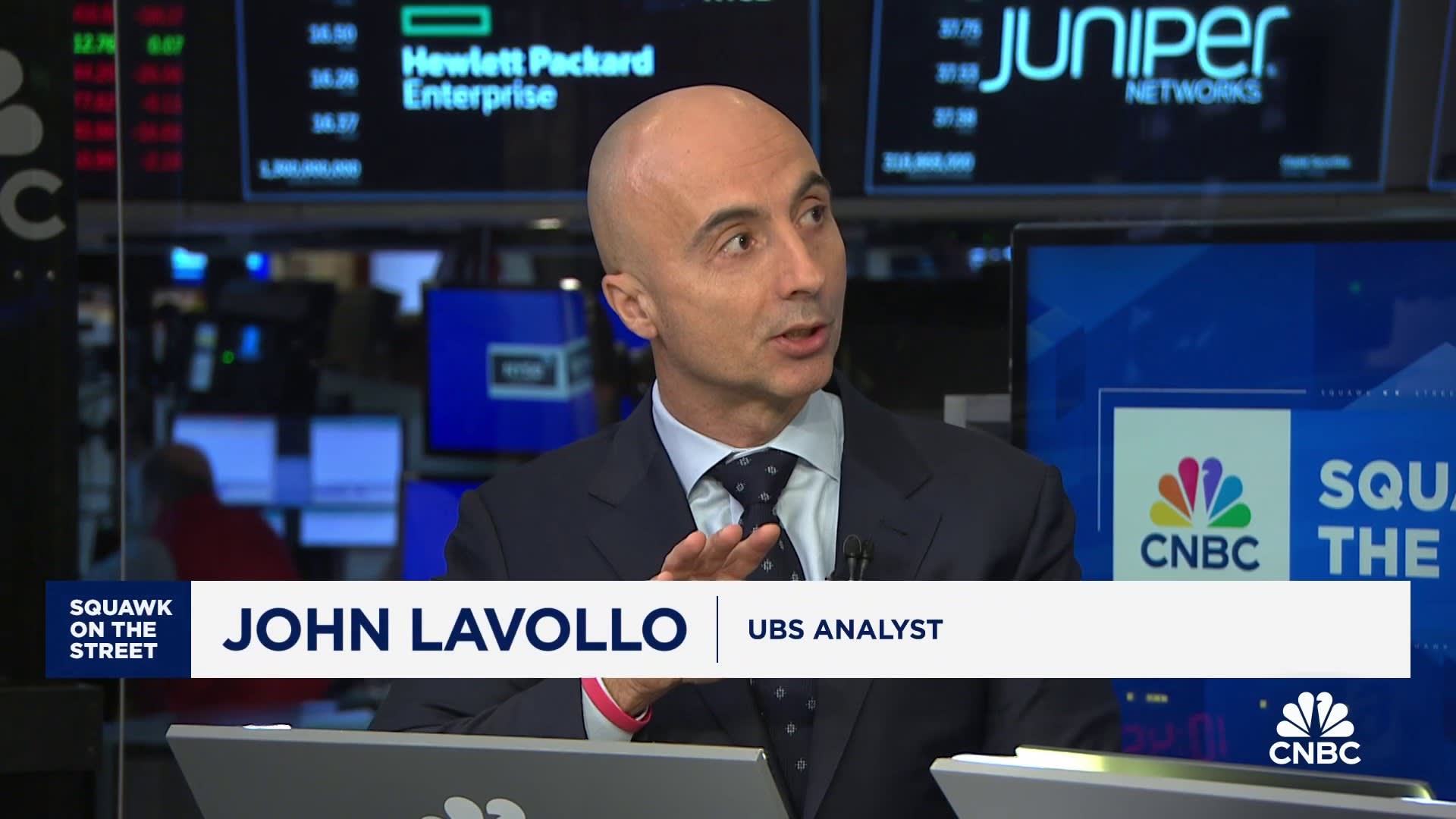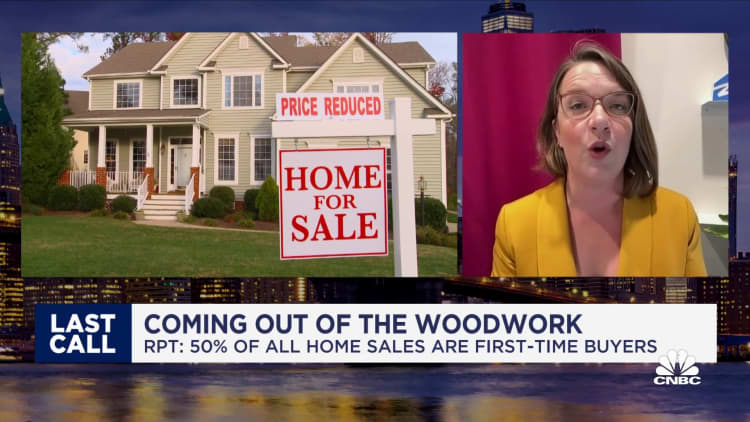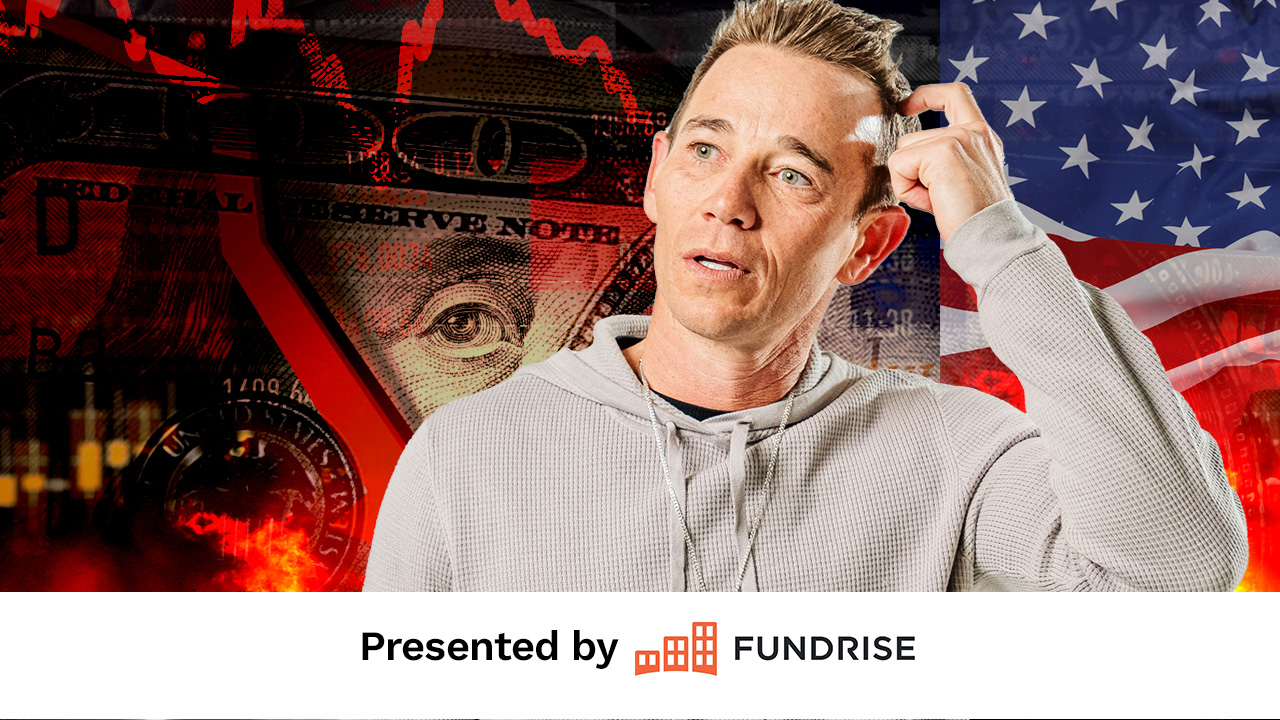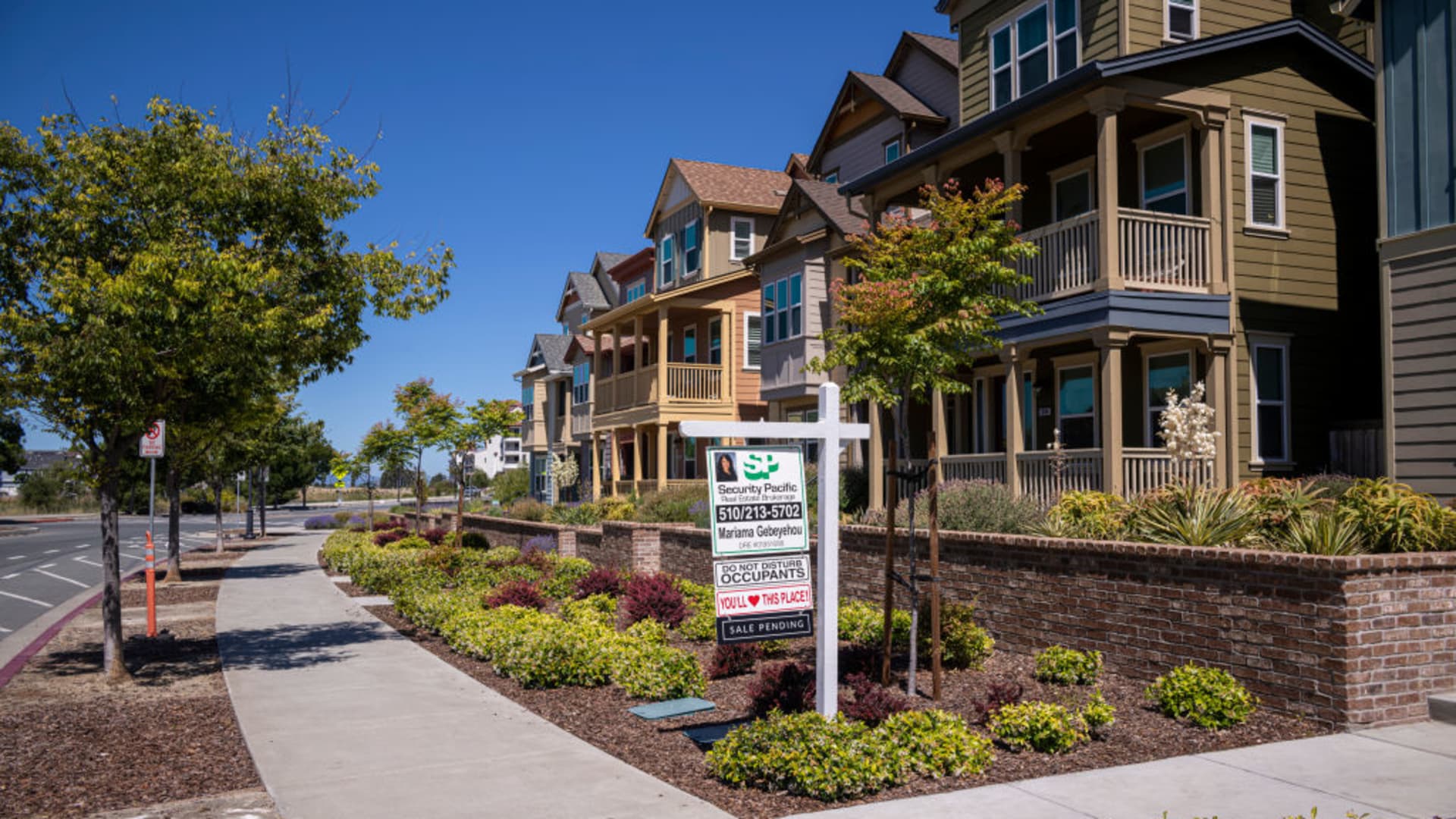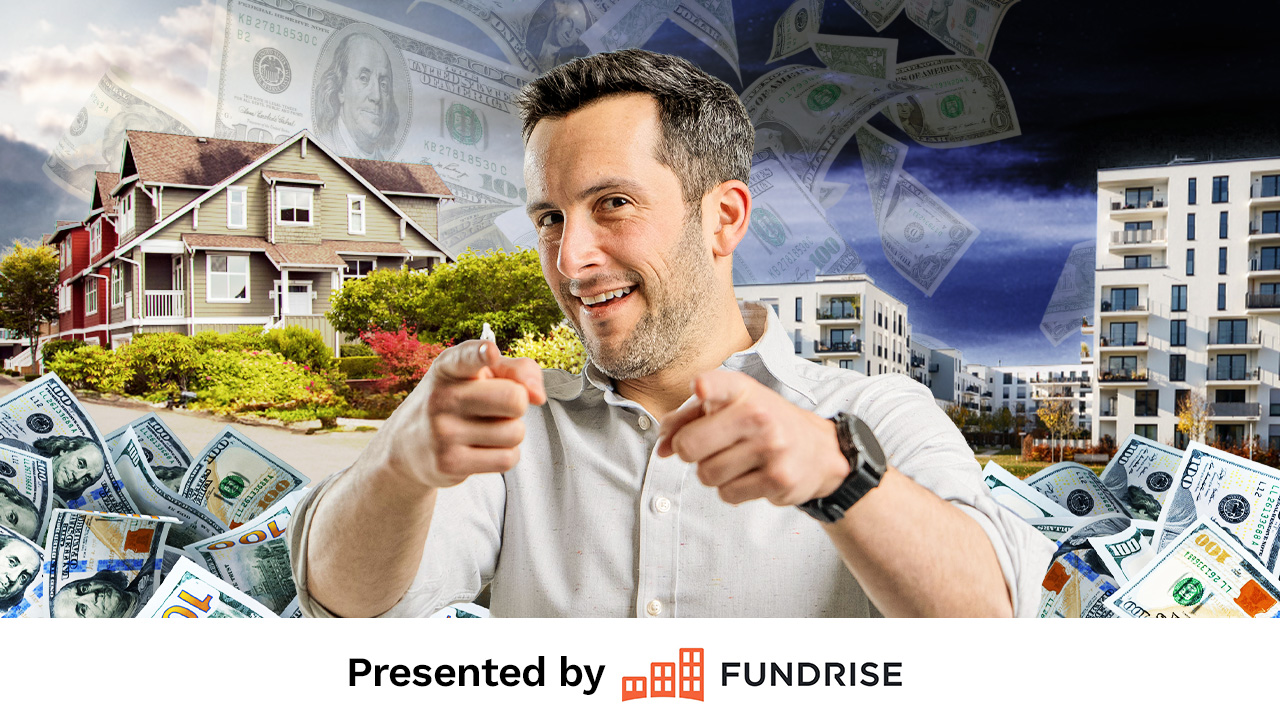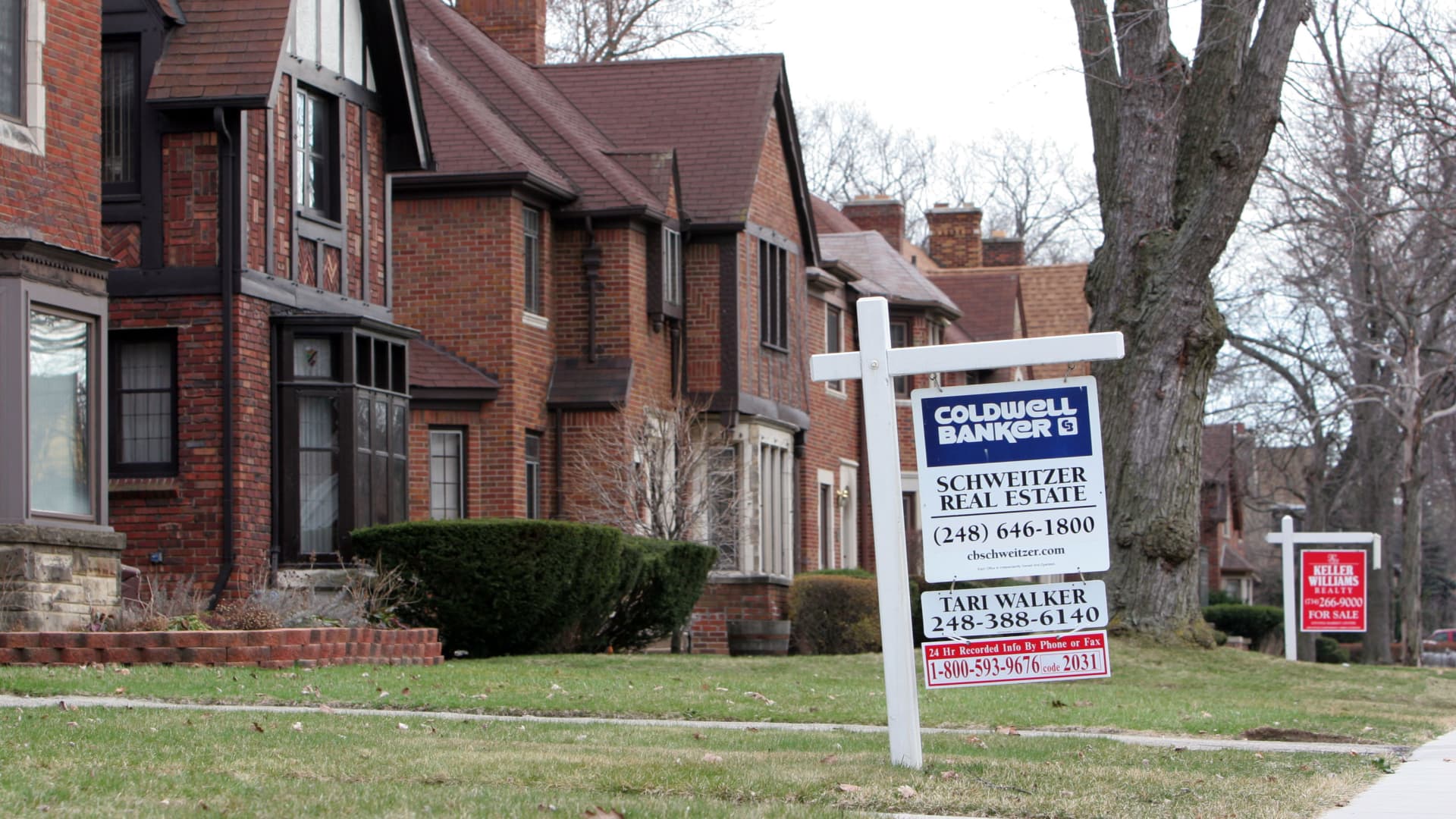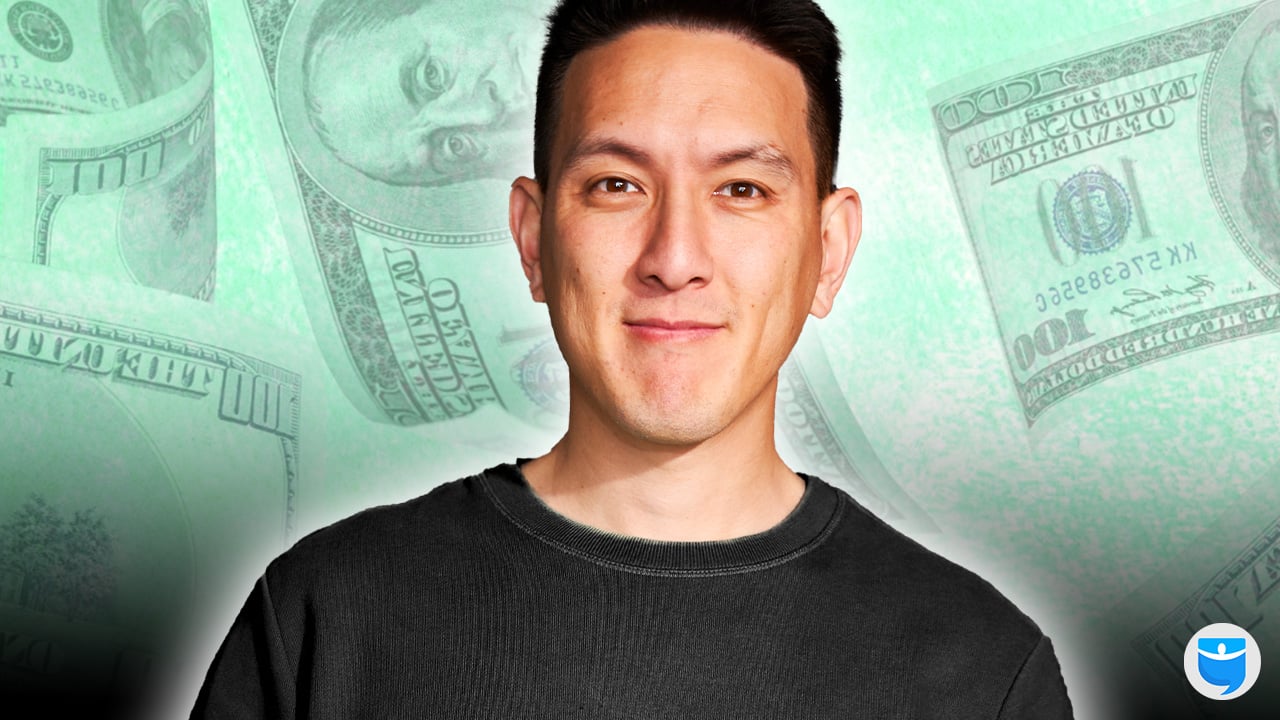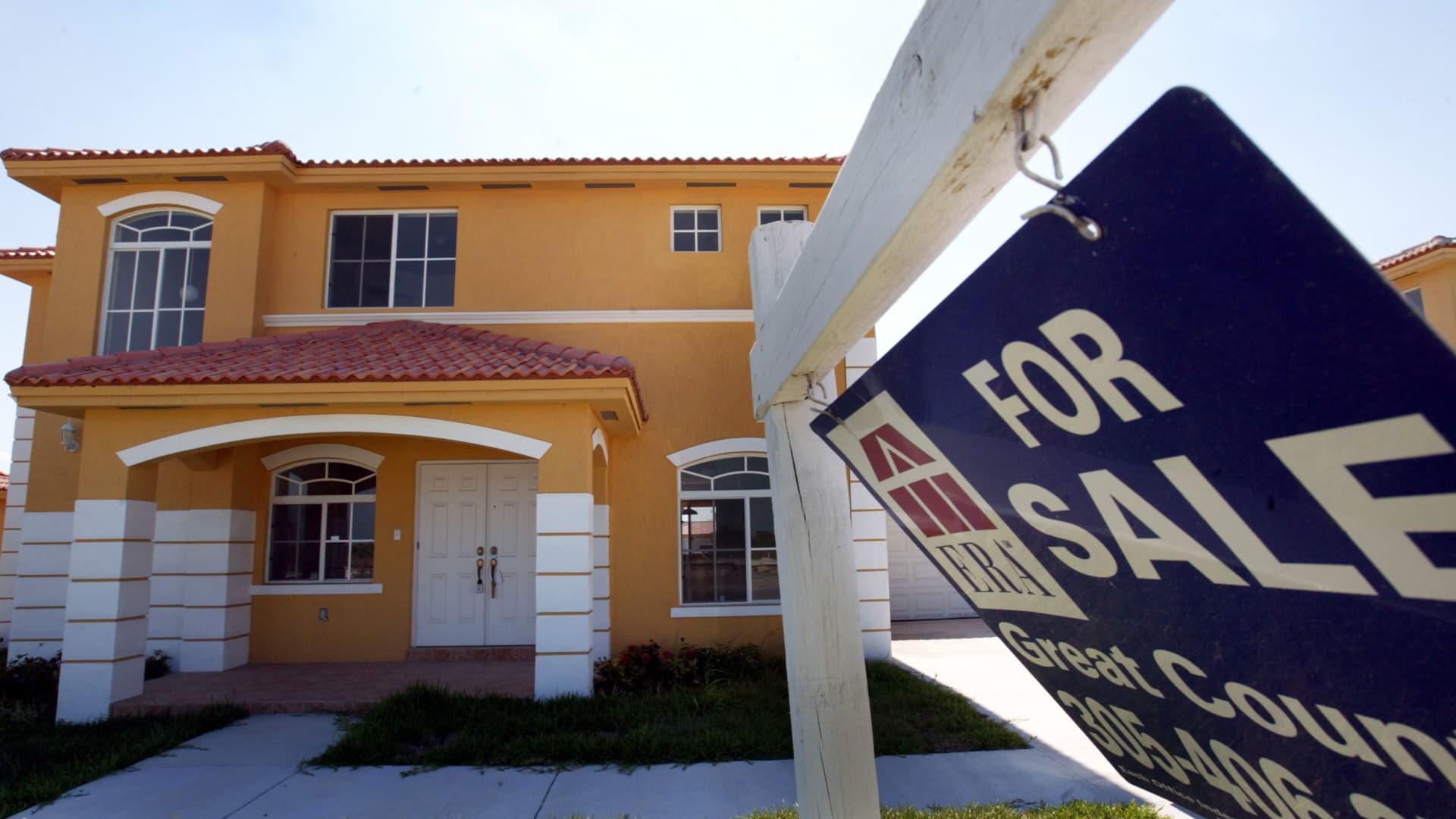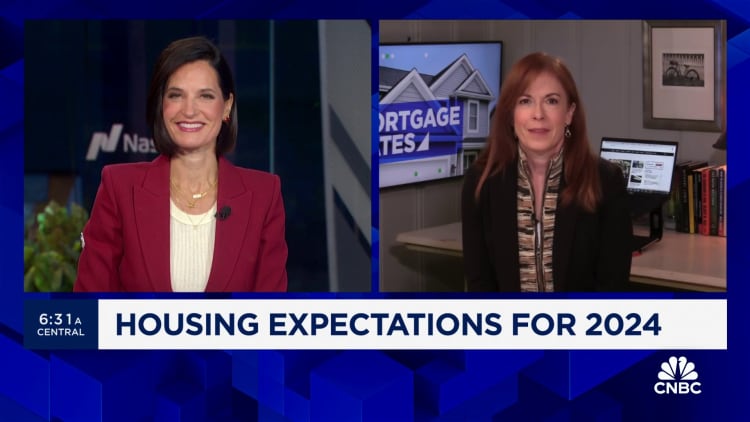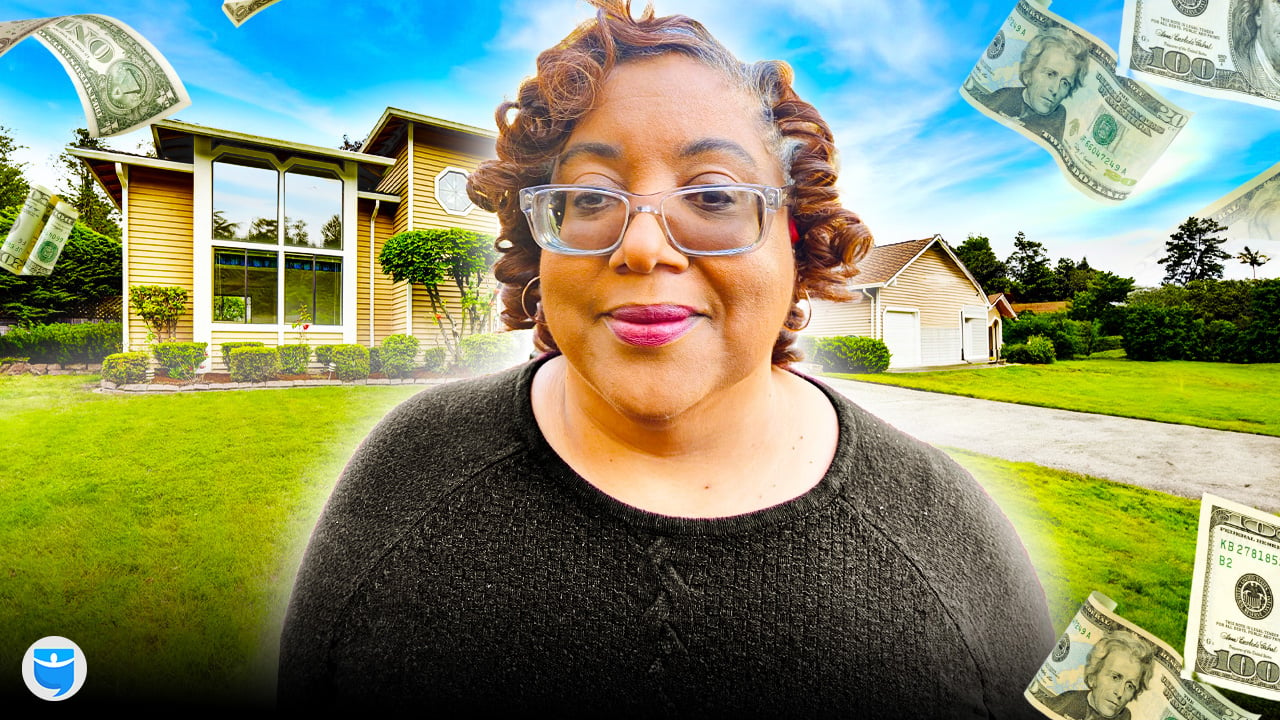Ashley:
This is Real Estate Rookie, episode 355. My name is Ashley Kehr, and I’m here with my co-host, Tony J. Robinson.
Tony:
And welcome to the Real Estate Rookie podcast where every week, twice a week, we bring you the inspiration, motivation, and stories you need to hear to kickstart your investing journey. And today, we’ve got another amazing guest, Dayna Hicks. And I love Dayna. Great, great, great guest, just a lot of good energy and her motivations for getting into real estate are so pure. And so just, you guys are going to see why we love her story so much. But also want to give a quick shout out to someone that left us a five star review on Apple Podcast. This person goes by the username of HammondsFam, and this person says, “I have deep dived into real estate investing for the past three years and I’ve been listening for years. And this podcast always has great info that I can leverage in my life and in my real estate journey.”
So if you are part of the Real Estate Rookie audience and haven’t yet left us an honest rating or review, please do, only takes about two to three minutes, but it does have a huge impact on the show. And we just might read your review on the show like I did for this one.
Ashley:
If you are interested in joining a boot camp with BiggerPockets, you can go to biggerpockets.com/bootcamps. Okay, well today joining us on the show is the incredible Dayna Hicks, a shining star in the BiggerPockets multifamily boot camp. We are so excited to have Dayna here to talk about her experience and her journey and dive into the exciting world of multifamily investing. So Dayna, welcome to the show.
Dayna:
Thank you. Thank you very much.
Ashley:
Let’s start off with telling us a little bit about yourself and how you got into your real estate journey.
Dayna:
Well, a little bit about myself is I was in high school and in Seattle, Washington. That’s where I spent most of my years, and that’s where I say I am from Seattle, Washington. I ended up getting pregnant very young age, 18, and right out of high school. And just decided that all the hardships that I had growing up that I wanted to help people. And I started very young. I was the youngest foster parent in Seattle. I think I was 21 when I started doing fostering. Started with relatives first and then getting into the actual foster care system. At 23, I think I was on a board, a foster parent association board, which is a very big… Washington is very big now, but we started it back then and I just got to wanting to advocate for youth in foster care as I learned more and more about it.
So my life has been, over the past 40 years, has been always involving foster care while I’m doing my regular work. I’ve always had kids, usually five to seven kids at a time.
Ashley:
Oh, my gosh.
Dayna:
… plus my own kids. So I had five natural kids and in between all my kids, I had foster kids. So I’ve always had kids in my house. And just a funny thing about that is I never wanted any kids, not even my own kids. I never even babysat as a teenager. But these guys kept flocking. And so I always learned in church when you’ve got one finger pointing at another problem, you’ve got three pointing back at you. What part of that problem can you solve?
And so that’s kind of how I got into foster care and working with youth. And so getting into multifamily was trying to provide affordable housing for these young people that couldn’t get it. And I figured most of it, because they didn’t know the obstacles. And so if I could help them get through the obstacles, then they could eventually get the affordable housing. And then also it was a nice way to have a kind of slow and steady income too.
Ashley:
Dayna, what an incredible start to your story here. That is amazing, providing that to your community. So along that journey, was there one moment in time where this was your aha moment, “I need to change. I need to change my life. I am going to change other people’s lives.” Was there any moment like that where you realized you needed to get onto this financial freedom journey?
Dayna:
I can’t tell you exactly what year that was, but I remember just reading it in church. When you go through your spirituality during your 20s, it changes to your 30s, your 40s, your 50s. So it gets deeper and deeper. But at one point I remember thinking back like, “Hey, back in the biblical times, everybody handed their kids down something.” My generation, we didn’t have any parents that had anything to hand down. And I said, “Well, I got to do this for my kids. I’ve got to pick this back up. We got to start this.” And so I wanted to have something to hand down to each one of my kids at my demise. They would have something that would perpetuate them forward.
Tony:
I love that Dayna. Family’s a big motivator to try and get us to build something because when we’re gone, we’re gone, but we can leave those things to kind of help our family. And Dayna, there’s some similarities between your story and mine. I had my first son when I was 16 years old and funny enough, he just turned 16 yesterday, so he’s at the age now that I was when I had him. But I remember, gosh, my son might’ve been two or three years old and I’ve shared this story before, but he had gotten super sick and I had to rush him to the doctor’s office.
My bank account was in the negative and it was a $15 copay for him to get seen by the doctors and they turned him away because I couldn’t cover the $15. And for me, that was a moment for me where I was like, “Holy crap, I really need to figure things out and make sure that I’ve got a good financial foundation for him moving forward.” And that’s really played into all the decisions I’ve made after that point. So for you, I mean, did you have one of those moments where like, “Man, this can’t be the life that I’m going to live for me and my child?”
Dayna:
I think that was a lot of my life, just growing up not having money. My mom didn’t have money, I didn’t have money. We just worked, lived paycheck to paycheck, but always having to count pennies that if I write this check, is it going to clear? If I put my bank card in this thing, am I going to have enough money? My calculation says I should have $10 over, but I might only have two. So I think that, coming through my 30s and I’m saying, “Hey, we got to do something different and figure out what that difference is.” And some of it was just doing a self-assessment. And I didn’t really start doing that till my mid-40s, the self-assessment like, “You know what? I’ve been at this job and they offer a 401k plan and I never bothered to invest in it because that was more money out my paycheck that I didn’t have.”
So there’s actually a moment when I was young with my baby and going to a welfare office to get money to be able to survive and I met this older lady. And one of the things she said to me was, “After you had this baby, you are not going to be able to do anything and you’re not going to amount to much because you made this choice to have this baby and you’re so young.”
And I just remember staring at her and not understanding what that meant and why she told that to me. And I came back and told my mom and just didn’t know what to do with that. But that stuck with me for a… It still sticks with me. I can say it [inaudible 00:07:11] and I can see her face. Don’t remember her name anymore, but just remember that. Anytime I came up against the obstacle as I… Was this the hill I was going to die on and she was going to win.
Tony:
Yeah, it’s such a crazy experience having a kid young Dayna because it really does change your perspective on life. And what I’ve found is that there are typically two types of people when it comes to teenage pregnancies. There are those who use the teenage pregnancy to become an excuse as to why they can’t achieve certain things, and then there’s a group of people who use the teenage pregnancy as the motivation to say, “Well, no, I’ve got to achieve this because I became a parent so young.”
Dayna:
Yep.
Tony:
And I get everyone listening isn’t going to go through that same experience that Dayna and I went through, but we probably all have something that’s happened to us in our lives where we get to make that decision, is this going to be the excuse as to why I can’t achieve what I want achieve or will this become the reason that I have to achieve those goals in that situation we always get to make within ourselves?
Dayna:
Yeah. One more piece to that is, I went on to go to the University of Washington and was able to go up for about two years, two and a half years, but this was that motivation. She said I wasn’t going to be anything and I went on to university, had my own apartment, able to make it through school with a baby.
Ashley:
Well Dayna, thank you so much for sharing that story with us. We are going to take a quick break with our show sponsors, but when we get back I’m going to talk more about your why and dive into your first deal.
Okay. Welcome back from our short break. We are here with Dayna and she’s going to talk to us a little bit about her why, the reason for her to start real estate investing, to build this financial foundation for herself. So Dayna, you talked a little bit about your welfare story, being in that office at that time and how that was a huge motivator. Along your journey, were there any other things that kind of highlighted you as to like, this is what I want to do. You had mentioned previously you wanted to help people. So talk a little bit about how multifamily and investing journey started out with creating that why.
Dayna:
So I needed to create something to leave as a dowry for my kids, should something happen to me. That was the first part of it. Nobody in my generation, in my family, who has done that. So I had to kind of create that, because we didn’t know what that looked like anymore. I only could read it in stories and say, “Why don’t we do that?” And so pick that up and try to do that. The second part of it is that I have been truly involved with foster care since I was in my very young, early 20s, 21, and I’m still currently involved and have recently just adopted a set of brothers in order for them to stay together.
But wanted to make sure that these young people as they venture out past 18, that they have a place and a path to go and affordable housing. And I thought I could provide some. If each one of my apartments could be an affordable house for a teen, then that was still me giving back.
Ashley:
Can you tell us what are some of the resources that you used to find out about real estate investing? Did somebody tell you about it and why did you specifically choose real estate along your journey?
Dayna:
I don’t remember the initial part, but I remember hearing Rich Dad, Poor Dad. And I had that book in my library for years. It’s just one of those books that I went and pulled it out. Like I’ve got this book, maybe I should read it. And so I started with reading that book and it kind of opened my eyes to, hey, I can do this a little bit differently. I don’t have to have a PhD. I don’t have to have a master’s degree. I can do this.
So I read that, which led me to follow another writer, which was One Rental at a Time. Someone told me about that and brought me that book and I read that, which led me to BiggerPockets. Then, I kind of dinked around in BiggerPockets for a little while and I said, “Well, I’m going to actually join this, just jump in and join this.” And when I did, I saw the multifamily part and I said, “This is exactly where I want to be.” And so I joined that group and man, it’s been awesome. It has been so awesome.
Ashley:
Just to clarify, did you join the boot camp before you got your first deal or was this after you had gotten a deal?
Dayna:
I joined the boot camp after. I was in the middle of a deal, but I had already had two apartments by then.
Ashley:
Okay, cool. Yeah. So getting the knowledge for that first two apartments, that was just from being on the BiggerPockets website. Were you in the forums? What are some things that a rookie investor can do if they’re trying to take the same path as you? What are some of those steps that made you feel comfortable and confident to actually take action?
Dayna:
Be prepared to jump off the cliff and just go with whatever goes. I think if they were to do it again, I would make sure that they definitely invest in their education piece. Read. Get something that makes you want to say, “Oh, I can do this,” or, “This is what I want to do.” It doesn’t have to be multifamily. It could be single family, it could be commercial, it could be whatever it is that you want it to be.
But make sure you find something that you are excited about because then you’ll continue to invest when it’s not so exciting, that you’ll continue to invest that time to get to the next exciting spot. And get with a group of people. That has been the most awesome piece that I ever learned is [inaudible 00:12:39] was an accountability group and I have an awesome accountability group.
Tony:
Yeah, I think surrounding yourself with other like-minded individuals, especially at the beginning of your journey is so, so important because the chances of you having someone in your life, in your close personal circle that’s also investing in small multifamily is probably pretty small for the average person, or that’s flipping or wholesaling or short-term rentals, whatever strategy it is you want to go after, the chances of you having someone is probably pretty small.
So when you can tap into these online communities, whether it’s BiggerPockets, Facebook groups or wherever you want to go, now you’ve got a sounding board, right? Now, you’ve got a group of people that you know who have already achieved what it is that you want to achieve, and that makes the goal seem more realistic to you.
Dayna:
It does.
Tony:
When you can shake hands with someone, when you know someone personally that’s already done it, gives you the confidence that you can do it as well. But Dayna, I want to set the table a little bit. I just want to make sure that I’m understanding the timeline here. So when did you get that first piece of real estate and just kind of walk through the timeline from there.
Dayna:
So I started this all pre-2016. It started with me purchasing my own personal property, kind of lining up like a year and a half before that. I lined up some things was doing with Rich Dad, Poor Dad, and I was able to get into my personal property. And it’s a blessing story along the way too. I refinanced and paid a bunch of things off. Then I came back on 2020 and got a HELOC because now I was ready to buy something. And I didn’t even know I could get this money without learning from my BiggerPockets group.
Tony:
Wait, so what year did you buy the house, the primary residence?
Dayna:
My primary house was bought in 2018. I refinanced in 2019 and paid off everything.
Tony:
And then you did a HELOC in 2020.
Dayna:
Did a HELOC in 2020.
Tony:
Wow, that is crazy. So I just want to pause here for a second just to make sure that our rookies are tracking, right? So you bought this home and within a year you were able to refinance to pull cash out, to pay off whatever it is you need to pay off. And you still had enough equity left in that property so that a year later you could go out and get a HELOC, which I’m assuming you then used to fund your real estate investments.
Dayna:
Correct.
Tony:
God. So guys, you hear people say that your primary home isn’t an investment and for some people maybe it’s not, but look at what Dayna just said. She very much leveraged her primary residence to fuel her real estate investing and I’ve met tons of other investors who have done the cash out refinance, who have done the HELOC to go out there and fund the purchase of their real estate business. So it is possible if you do it the right way. So Dayna, man, I love that. What a crazy three years for you, that was.
Dayna:
Then I turned around and used a small amount of that money to purchase my first triplex and I closed that deal on December 31st, 2021. So that was a triplex, two bedroom, one bath, with people already in it, paying rent. And then four months later, I took the other part of that HELOC and I fell into this duplex that we ended up making a triplex right near La Salle College. It’s a half a block away and it was also two bedroom, one bath and we built in the basement so it was a studio. And closed that in 2022.
Ashley:
So Dayna, let’s start with that triplex and kind of break down the numbers and dig into that. Maybe I’ll throw some rapid fire questions at you and we can kind of go into a deal dive here. But where was this located? Was this in your market? Where was the deal located?
Dayna:
The deal was located in my… My market is my home area, Philadelphia.
Ashley:
What is the purchase price on that property?
Dayna:
The purchase price was 253K.
Ashley:
And how did you finance it?
Dayna:
Regular mortgage in my name with 20% down.
Ashley:
Okay, and then that 20%, was that cash you had saved up or was that from your HELOC?
Dayna:
The cash was from my HELOC.
Ashley:
Okay, and what did you do with the property?
Dayna:
It was already fully rented, so I just did nothing.
Ashley:
Awesome.
Dayna:
I raised the rent. I think I raised it up $100 to get them, because they were below market rent, so they were all seniors in there, so I knew I couldn’t just jump all the way to the top or they wouldn’t be able to afford it. Once again, it was back to affordable housing and I got to really like my tenants. And then every year, I do something for them. So I rehab one area in their apartment and I raise the rent up 100 bucks. So I’m slowly bringing it up, but I’m also bringing my apartment up and they’re taking care of it and they love it.
Ashley:
What a great strategy, and let’s talk about that a little bit more of, you find great tenants and what you’re willing to sacrifice to keep them instead of raising the rent to get that max cashflow that you want, but instead of the longevity of having somebody that’s going to stay for 5, 7, 10 years is worth it rather than having a turnover every single year because you’re trying to really max out, or you get somebody in there who destroys it. So can you tell us how you approach them with this small rent increase and why you decided to actually keep those tenants in place?
Dayna:
Well, how I did it is I decided… After having conversations that I decided what my budget was going to be and there was the three apartments, so I said, “I’ll just invest $10,000 into it. That will be basically 3000 per unit.” And then I divided that in half. I said, “1500 is going to be for labor and whatever I can get done for the other $1,500.”
They were kind of small. So we started in the kitchens. Oh, and these ladies were [inaudible 00:18:07]. We didn’t do a complete remodel. We did a refresh. Some of it was painting the cabinets, replacing oven hoods, adding lighting, adding some extra sockets, painting walls, and one kitchen needed a new floor and we put in new flooring. So it was just little things that just brought into a new kitchen. They were so ecstatic.
Tony:
I was just going to say, right, they’re probably so appreciative of that, right, because whoever this last landlord was just collecting the rent checks and not really worrying about their quality of living.
Dayna:
Correct. Correct.
Tony:
But to your point, if they’re good tenants, you want to try and keep them. Ash, it makes me think for you, right, because obviously you’ve got a lot of long-term rentals as well, and I know some of yours are affordable housing. How do you strike that balance between trying to maximize rents versus maybe keeping them a little bit lower, but having that tenant that you know is going to be a good tenant, how do you strike that balance?
Ashley:
100% would rather get less rent and have a better tenant that is going to stay a long time, not have to deal with the turnover. Even if somebody keeps the apartment in perfect condition, we just had a police officer move out of one of our units. She had only lived there for nine months. She had signed the lease month to month because she was trying to buy a house and she took wonderful care of it. Well, she put holes in the wall and at the time that she moved in, there was a third party property management company managing the property. And they had told her, “When you leave, you have to fill the holes with mud.” Well, she did that. She followed the rules. Well, it has made it worse for our contractor because now he’s trying to sand them down. The paint didn’t match. All this horrible stuff has happened and it was just like, “This was supposed to be the perfect turnover, ready in a day. Here we go, next person in.”
But because there’s always these little things that can come up with any turnover, so I would rather eliminate turnovers and just getting a good tenant in that’s going to stay long and that’s going to not trash the place and that continues to pay. They are worth keeping and not increasing the rent. It was probably like my third rental maybe, and it was the house that I used to live in before we built our house. And Dave had come to me and he was so excited. He was like, “I rented out the house. You don’t have to worry about it. I took care of it, everything. They’re going to pay $700 a month.”
My jaw dropped. I’m like 700, we could get $1000. Utilities are included. And I just was like, “Are you kidding me?” And I was so devastated. That was in 2016 and they are still there. We have not had one turnover in and they take great care of the place. They never need any maintenance done, anything, they take care of it. And so looking back at it now, I would way rather have that than have somebody new in every single year.
Tony:
Yeah, it’s weighing that balance, right? Now, Dayna, I’m curious for you, because you jumped right into multifamily. I think a lot of working investors who are listening feel that maybe they need to start with a single-family residence first, but your first purchase was a triplex. What made you feel that that was the right strategy for you and how did you build that confidence to start with three units from the very beginning?
Dayna:
I think when I was in my reading, I was understanding this concept that you could start single family, but it’s either 100% rented or a 100% empty, and that just weighed in. I said, “Well, that’s not good.” But if you had a multiplex, your vacancy is a lot lower. The chances are them both being empty at the same time are not there. And also, you always have some income coming in. In my area, because Philadelphia is a pretty populated city, duplexes and triplexes are common. They were in the same price as a single-family, small row home. So I was getting more bang for my buck for the amount of money by going into a triplex.
Tony:
Well, let’s talk a little bit about that, Dayna, because you said that they were common in your area, which is the opposite of where I’m at. There’s no small multifamily where I live in California. But how did you come up with your buy box? How did you know what type of multifamily was the right type of multifamily for you, location, size, all those things. What was your buy box? How did you come up with it?
Dayna:
Well, I started with just what my pricing range was. I didn’t have a whole lot of money, so I wanted to put like $50,000, $60,000, my 20% down. So they kind of told me what my range was, 250, 300. So it was enough money for any small row house, but then I saw triplexes and duplexes in the same amount so I just became a little greedy and just said, “Okay, if I could do this, if I could do this and get it, would I be willing to pay a little bit extra?”
Because it wasn’t that much. We’re talking about $10,000 or more to get into a triplex versus a single family home. So I said, “Well, let’s go for the triplex. You want to get there, why not?” Then, there’s three people paying and for sure I won’t have to pay the mortgage because somebody will be there to be able to pay it. And that’s kind of how I got there.
Ashley:
When you were looking at markets and the location of finding multifamily, what were some of the factors you considered? Did you hone in on a specific zip code or area code or neighborhood when you were searching?
Dayna:
I did. So one of the things when they’re teaching you about finding your market, first thing I needed to do is make sure that it was like in 30 minutes of me, because I knew that we were going to have to be hands-on with this. Well, 30 minutes is still inside of the city in Philadelphia, unfortunately, so you can’t get out of Philadelphia in 30 minutes. So it just made sense to find an area that was really close. I didn’t necessarily have a particular neighborhood. There was just some that I was going to stay out of, but I just looked around and then I found some not too far from my house, and I still look around all of Philadelphia, but I just kind of look at my buy box now and what the area in the neighborhood. So Philadelphia is my market.
Tony:
Did you ever look outside of Philadelphia or were you committed to just investing in your backyard, and if so, why?
Dayna:
I have glanced, but I’m not there yet because when I go outside of Philadelphia, the price starts to go up. So I’m just not there yet.
Tony:
Gotcha.
Dayna:
And I want it to be close where I can still have hands on. Since I’m just starting, I just needed it to be close that I can shoot across town if I need to or not, didn’t want to be too far.
Ashley:
Dayna, how many times have you had to shoot across town to take care of your property?
Dayna:
Not very often.
Ashley:
Yeah.
Dayna:
Not very often. I’ve got some good tenants.
Ashley:
Good.
Dayna:
I’ve got some good tenants. Now, they’ve had some issues, but I also learned about my vendors in my boot camp, and I already had that, but I didn’t have everything organized, so they helped me organize that. So I have some vendors that, when they call me and tell me something’s going on, I call them and tell them, “Go check it out. Let me know what we need to do.” They give me the rundown of what we got to do, and most of the time, they can take care of it and it doesn’t require me.
Ashley:
I think that’s a common misconception with a rookie investor is that it’s, you have to invest near you and it’s scarier to invest out of state. But ultimately, most of the time, you are not going to be going to your properties anyways. You’re going to be having a handyman go there. In some circumstances, maybe you’ll go and you’ll assess the situation, but there’s nothing you can do anyways. You have to call the plumber, so you might as well just send the plumber in the first place instead of going there.
One thing is definitely convenient if you do have a turnover, being able to show it yourself, things like that. But the difference between having a property close to you and a property out of state or out of your market that’s farther away, it can be exactly the same as far as finding those people who are boots on the ground. And a lot of times, you don’t even need to go to the property at all. You will learn and realize, and sometimes you just go because you’re curious.
Dayna:
My other two choices that I haven’t… I just look, but I’m not there yet, is in North Carolina around the Charlotte area and Atlanta, Georgia. And that’s because I have some friends and families around that area too that I can kind of… If I need to pop in there, I have a place to land in and some confidence that they could help me in an emergency.
Ashley:
Dayna, when you were searching for properties, what was your buy box? What is your list and has it changed? I mean, the first property you bought was during COVID and after that the market has definitely changed. So could you go through what your buy box is and how you’ve had to maybe pivot or change it since your first investment?
Dayna:
My buy box was small, multifamily, two or three. I figured I could handle that. Somewhere under 300K initially. Now that I have two of those, then I went into, I’m going to call it [inaudible 00:26:50] it’s a transitional house, and that’s something that’s very different and I needed to purchase that, and that’s part of my why. We can get into that in a little bit.
But my box is changing. Now, as I’m getting more confident, I want to go into a bigger unit. I always like to go really small, but sometimes the big things land in my lap. So I say like four to eight units, but I’m looking at a 16. So that’s huge, huge, huge. But it changes when I get to those next levels and the next level gets bigger and bigger.
Tony:
So as you talk about leveling up, have you only used the HELOC as your debt, like 20% down HELOC to fund the purchase or have you evolved into other types of debt and funding as well?
Dayna:
Well, I did use other funding. So the first triplex of course was 20% down, HELOC, my money, and then a regular mortgage in my name. The second unit, I used a hard money loan and I got money back to actually do the remodeling, and then I refinanced that out into a regular mortgage, and that’s under my LLC.
And then the third purchase was really, really creative. Really, really creative. But I got a multifamily, residential commercial home [inaudible 00:28:07] because it’s all of that. It’s a home that’s under residential. It has 13 bedrooms and 13 bathrooms. It is my transitional home. And so that was creatively getting that financed under whatever title somebody wanted to put it under, but we got that and I got that under a 30 year also.
Tony:
Okay. So the second property, the second triplex, that was a rehab project for you?
Dayna:
Yes, it was.
Tony:
Gotcha. Had you ever managed a rehab before that?
Dayna:
Nope.
Tony:
So walk us through it quickly, Dayna, what was that process for you like managing a rehab for the first time? Let’s just start with the first question. How did you come up with your scope of work? How did you identify, here’s what I want to be done inside of this house from a rehab perspective?
Dayna:
Well, let me tell you, at the beginning, I didn’t even know what a scope of work was. So they had to explain all these things to me really quick. I said, “Okay, I can do this.” So basically, I had to list out what I wanted and I had a friend who’s been my main contractor for my house, go through the house with me, tell me what it needs. I’ve been through a lot of projects on my house with him, so I’ve learned how to start picking up some of the things that he needs up front. And we listed it out. I found another contractor group who was local and told him this is what I needed. He needed to start and I needed to start.
And so he agreed for the money I had and said, “This is what I got and this is what needs to be done and can you do it?” And he said, “Yeah, we’ll get it done.” So that’s kind of how we did it and got everything listed that we needed. Unfortunately, here’s one of the failures in that, is that I didn’t realize how much I needed to manage them. So things didn’t get done exactly the way I wanted and things didn’t get completed. So I had to end up letting him go in the midst of it and then rehire somebody else [inaudible 00:29:57] threw me out of budget a little bit and get that done.
Tony:
First, let me say, Dayna, totally normal to have to fire a contract in the middle of a job. I think every real estate investor who’s done enough rehabs has probably done that before. But how did you find that contractor initially, the one that you had to fire, and then how did you find the replacement for that person?
Dayna:
Initially, I found it through a friend who had a friend who was a contractor. So it was just kind of word of mouth and then came over and had him scope out, have a conversation, seemed like we could make it work, had enough connections between the friend that we thought it ought to work.
Tony:
And then the final contractor who finished the job?
Dayna:
I went back to my same guy who does my house.
Tony:
[inaudible 00:30:35].
Dayna:
I said, “You need to finish it for me.”
Tony:
Man, managing a rehab is definitely a big experience, especially when you’re doing three units. I guess what advice would you have to rookies who are looking to start that first rehab project, knowing what you now know?
Dayna:
Make sure you are checking your property at least every other day to make sure that you’re seeing the progress that you want. Also, make sure when they need purchases, that you understand what the purchases are for. Because when you get groups in there, they like to spend money at Home Depot just for everything, but when they walk away, they take everything that you bought. So just managing that and how much stuff you can take back and not let them walk off as you paid for that plus services, plus they took all the supplies.
Ashley:
Yeah. As detailed as you can be into what your agreement, your arrangement is, and I’ve learned that lesson the hard way too. And building out that really detailed scope of work and who’s responsible for what. I mean even delivering the materials, do they have to go and pick up the materials? Who’s paying for the materials? And then I saw someone had posted on Instagram, I can’t remember exactly who it was, but they had posted a scope of work that they were building for a project, and they said, “My first scope of work I ever did, it said new kitchen cabinets, and now it says, demo existing cabinets, new shaker style cabinets. There’s going to be four uppers and five lowers that assemble cabinets attached to the wall. Add hardware onto cabinets, put countertops on.”
It was very, very detailed as to every single thing instead of just installed new cabinets. And then they even said like, “See attached layout for the cabinet design,” and things like that. So you’ll learn more and more as you go on, and unfortunately, you’ll pay for that learning experience in mistakes. But definitely follow other investors that are doing rehabs, watch their Instagram stories. So many people share just their project management screens as to, here’s the things that I’m doing, here’s what my scope of work looks like, here’s the checklist that I’m using.
And I have found that to be a great resource along with even signing up for different softwares. So different softwares will send out newsletters. They spend so much money in research where these newsletters will give you like, here’s our checklist for doing a rehab. Here’s our checklist for a turnover. Here’s our checklist for a lease agreement. The property management software companies do really, really great newsletters with a ton of these checklists and information and things to help with your systems and processes too.
Dayna:
Yep, I agree.
Ashley:
Before we wrap up here, you did touch on the transitional housing and I’m very, very curious as to what that is, if you could describe that more for me, please.
Dayna:
So the transitional housing, like I said, it was a box building. We’re not sure-
Ashley:
What do you mean, it’s a box building?
Dayna:
It looks like a house, but it’s a real huge building. So like I said, it’s 13 bedrooms and 13 en-suite bathrooms.
Ashley:
Wow.
Tony:
It’s almost like a hotel.
Ashley:
Or like a boarding house.
Dayna:
It looks like that and it had been used for a boarding house at one time. But I didn’t want to buy it as a boarding house because those are hard to get licensed. So I couldn’t buy a boarding house. I had to buy a residential house and it couldn’t be commercial. So it was really interesting how we were going to use this. So based on how we were going to use it, that it was going to be for a foundation I’ve called Envision Success.
It was going to be a program house. So it’s still under residential, but it’s kind of used commercial where this is going to take in transient young people, 18 to 24, who have aged out of foster care or the juvenile system, something like that, out of DHS, but need a little bit more support while they’re trying to get on their feet to get their own housing.
Ashley:
Wow, that is super cool. How did you even find out about an organization that you could work with to do this?
Dayna:
Two things. One, it’s my organization. And two, the teens would age out of my care at 16, 17, hitting the streets. And they’re just kind of so tired of the DHS. I call it the ankle bracelet. They’re just so tired of one more social worker, one more case worker, one more house to go to. And they would just hit the streets unprepared. And then at 18 when there was no more funding, they would like… We don’t have any way of getting help. And so there was an act that was done about five or six years ago that allowed funding between 18 and 24 if they come back to DHS. So now they had to find housing for these people and couldn’t find it. Well, now we’re here.
Ashley:
So now your organization connects with the funding and now you’re trying to purchase this property. So how did you end up to get the finance for this?
Dayna:
We got it as a residential home, not commercial, and we went through several different people that I’ve found on BiggerPockets.
Ashley:
Wow.
Dayna:
Different brokers. Some tried this, some tried that. Somebody else in the back pocket could do this, and we got it together and it closed September 25th, 2023.
Ashley:
Wow. Congratulations.
Tony:
Congratulations [inaudible 00:35:54]. Dayna, I think you illustrate something that we’ve talked a lot about here on the Ricky Show is that oftentimes new investors make the mistake of going to a bank, going to a lender and saying, “Hey, I need a 20% down loan to buy this thing,” which isn’t the correct approach. The correct approach is to say, “Hey, I’ve got this property. It’s 13 bedrooms, 13 en-suite bathrooms. What’s the best loan product for me to buy this property?”
Because your goal isn’t to pay 20% down. Your goal is to get the best loan product for that property. So it sounds like you went to all these different lenders, brokers, banks, et cetera, explaining your situation, and then they were able to give you the best loan product for you. So I just want to get a little bit of clarity on the loan product, Dayna. So what was the down payment?
Dayna:
It was still 20%.
Tony:
20% down. And it was a 30 year loan?
Dayna:
Yes, under my LLC.
Tony:
Under your LLC. Interesting.
Dayna:
Yeah.
Ashley:
What was your interest rate?
Dayna:
8.6.
Tony:
That’s actually not bad. 2023, on a commercial loan. My last short-term rental I bought was at like 8.7 on a single family that was under our LLC as well. So the debt is under your LLC, so it’s not even going against you. Did they look at this as like an income generating property or how did you get qualified for it? Are they looking at the potential rents to underwrite it that way?
Dayna:
It was confusing, yes. In the long term, yes, they did look at that, but it took a lot of convincing. Everybody had to see the vision, and when they saw the vision, people started jumping on it. But I will tell you from the beginning that banks aren’t the number one place to go for your funding. I found that through BiggerPockets, if you work with one of your brokers, someone’s going to give you a bigger picture of how to do it.
I do get some things through banks, but it didn’t come I walked into the door of the bank. It came from my broker that says, “Try this particular bank because we have this relationship and they do things this way.” Not for me walking in the door saying, “Hey, I want to apply for a loan for a house today.”
Ashley:
That’s almost like an insurance broker. Instead of going to a State Farm agent, you go to insurance broker who can shop your insurance out to multiple different companies. Yeah, that’s a great advice for doing that for your mortgage too. Dayna, let’s talk about the numbers on this building. What was the purchase price?
Dayna:
Let me tell you the first, it’s real interesting. The listing price was 575, too high for this neighborhood. Way too high for the neighborhood. Couldn’t figure out why, but after negotiating, we got it down to where I was willing to get it at 395.
Ashley:
Oh my God.
Tony:
Whoa.
Ashley:
You’re a great negotiator.
Dayna:
Yeah, yes.
Tony:
Yeah, I want you on every deal that I’ve got moving forward, Dayna. I’m not buying a single deal until I run it past you first.
Dayna:
Yeah, yeah. And then we put 20% down, and then it just seemed like there were blessings along the way. Wanted to get it down there [inaudible 00:38:44] then we had to come up with almost a 100K. And my first silent partner is my mom, and she invested with me.
Ashley:
Shout out to mom.
Dayna:
Shout outs to mom. Yeah. And so we came up with the money together, and then it seemed like when we struggled to get all this money together, we had it, but then different things came back and we ended up getting refunds back. They didn’t need this amount of money, didn’t need this amount of money. So it was actually a blessing on how we got it.
But we got into it for 395, 20% down, and yeah, the building is ours. And we’ve got a decent mortgage on it, and we have 13 rooms to use. We’re going to start off with just 10 initially because we’re going to use one as an office, and then two in the basement needs some work on their emergency egresses before we can use those. But for right now, we have 10. 10’s plenty.
Tony:
Yeah, 10’s a lot. But Dayna, I’m sure the question that’s on everyone’s mind right now is how the heck did you negotiate almost a $200,000 discount? What did that conversation look like? What’s your advice for the rookies that are listening?
Dayna:
I think, I’m not sure of the grades. They talked about different neighborhoods being A, B, C, and D grades. So mine would’ve been in a D area if there was, or E. The price was way too high for that. Okay? It’s next to a house that might be 100K. It just doesn’t work that way. There was nothing else comparable like that in the area. So I did know my comps for that. Then, the fact that nobody in this particular area… Well, when I was trying to finance it, it’s not going to be an Airbnb. It’s not going to be a vacation home because this is not the area those people were coming for vacationing. Not at all. So there was no one coming for this.
So if you want me, these are the things. And I walked through all the things that were wrong with it. One, that it needed the HVAC to be fixed. It had a fire in it. Their windows were boarded up. There was no emergency exits. There were a lot of things. So I said before I could even look at it, some of these had to be taken care of. So he was taking care and said, “Well, how about we just wheel and deal and go down?”
My number was like around 425, but he had already dropped it down to 495 without me getting there, so that if you take it for 495. And so then I started giving him my long list of stuff, and then I just said I would do 380. And that’s my magic number. That’s where I came up my house. I just picked 380 because I know he was going to work me up. And he said 395 is where he could go. And I said, “Okay.”
Tony:
So Dayna, two super important points to call out there. So first, the listing price is just a suggestion.
Dayna:
Correct.
Tony:
And just because someone lists something for a certain number doesn’t necessarily mean that either, A, it’s actually worth that or B, that that’s the only number that they’re willing to take. And you don’t know what they’re actually willing to take until you start talking with them. Every property has a number where it works, and it’s up to you to try and figure out where that number is, and then to communicate to the seller why the number they have doesn’t make sense and why the number you have does make sense. So kudos to you for sticking to your guns and not, I guess, giving up just because the number was so far off from what you wanted, right? We’re talking a $200,000 difference almost. It’s a big difference.
A lot of investors would have just… They wouldn’t even have looked at that deal because it was so far off from where they needed. So kudos to you for doing that. And then second, I would assume that part of the reason that that seller was maybe so flexible was because of where we’re at in the market cycle right now. With interest rates in the eights, right, like what you got on this property, there’s less buyers out there right now.
Dayna:
Correct.
Tony:
So the seller probably knows that. So it makes them a little bit more willing to sell this property to you. So even though you’re buying this at an eight, Fed just said yesterday, I saw a bunch of stuff floating around the internet, that they’re going to start doing rate cuts again next year, right? So imagine what happens if you can take this 8% interest rate and you refinance down to a six. How much more juicy does that cash flow get?
Dayna:
Right.
Tony:
So for all of our rookies that are sitting on the sidelines waiting for that perfect moment, don’t do that. Do what Dayna did. Go out there, hustle, find that right, deal, negotiate. And if it cash flows at an 8%, imagine what it’ll do at a 6%.
Ashley:
I think that’s a common misconception of what you explained right there, Tony, as to now can be a great time to buy because you’re getting stuff at a better price, and you can always go and refinance later. I was at a kid’s birthday party on Sunday, and there was a mom talking about how they wanted to buy a house, but it made her sick to her stomach about the interest rates. And she just could not pay the interest rates, and they were going to wait until they were lower.
But what that means is you’re going to pay a higher price later on, even though you’re getting that lower rate, where someone could buy it now for a lower price and then go and refinance when the rates do drop. So I think that’s a huge misconception that people don’t understand, and they’re not doing the math on it, I guess. And I mean, you are taking a chance. There is the chance that interest rates just continue to go up and up and up, but hopefully you bought the property, that it is cash flowing and it’s a deal as it is. So if rates do drop, it just becomes a juicier deal, and that’s more fat on the steak for you.
Tony:
And say, the rates do go up, say rates go to 10%, now you’re going to be kicking yourself that you’re paying 10 instead of paying eight. So it’s like either way, if the deal makes sense today, you should move forward with it.
Ashley:
You know what, one more rant on that, Tony, real quick. As I was listening to a podcast today, this morning, taking the kids to school, and it was talking about sub to and how there was somebody who went and purchased a property for 850,000, and they were so caught up on the fact that they were getting it sub to, where they were getting this low mortgage payment, this low interest rate, and they were so excited that they paid the 850, what that person wanted.
The same day they closed, a house next door to them, which was a comparable property right next door, sold for 650,000. That’s a 200,000 difference that they overpaid for their property just to get that sub to financing. So I feel like it gives you something to really think about as to, are you really overpaying? I mean, you’re going to owe 850,000 on that property until you pay it off, where if you get it for 650, and even though you have an interest rate, it’s still less that you have to pay on the property or have to owe on the property. Okay, I’m done with my rant. Back to you Dayna.
Tony:
We need a new segment. We got to call it the Rookie Rant, and then Ashley, you can just go off the rails for a few minutes at a time.
Ashley:
Okay. So Dayna, to kind wrap this up, what are you going to be cash flowing on this property? What is this grant going to be paying per a bed for this property?
Dayna:
Oh, boy. Okay. Numbers here. Okay, well, so to make the numbers easy, we’ll just stick with the number 10. Basically, right now we can command for… We’re just opening it up actually this month. So the rents will command… The money for the program will command anywhere between $2,200 and $2500 per room.
Tony:
Wow.
Dayna:
And that’s because there’s a service that comes with the place.
Ashley:
Okay, I’m not even doing math in my head, but I’m thinking, “Okay, you got the property for 395. You’re getting $2,500 a month-
Dayna:
[inaudible 00:46:07].
Ashley:
… times 10.”
Tony:
Per room.
Dayna:
Per room, yes. And then my mortgage right now, currently for that is 2790, I believe. 2790.
Tony:
What the heck?
Ashley:
So almost one room will cover your mortgage payment, and then you’re most likely paying utilities for the property.
Dayna:
Right.
Ashley:
Yeah.
Dayna:
So there’s a couple of things going on in there. There’s a little split between businesses there. So for my part, for the real estate, I’m renting it to the program for 4,500, and then the program will do their existing part of that, and they have expenses. But to pay to my real estate side, they’re paying $4,500.
Tony:
Yeah. But you own the program as well, right?
Dayna:
I’m a part of the program. I don’t own it. It’s a nonprofit. So I’m a part of the program, yes.
Tony:
But it just goes to show, right? Like, man, when you find the right deal, you’re talking a 395 purchase price and you’re renting out each room for almost what your mortgage is, and there’s 10 of those rooms. That’s a pretty good spread.
Dayna:
Yes.
Tony:
It reminds me of, we had an episode a while back with DeVonna Reed and her and husband focused on sober living facilities. And same, she would go out and buy a single family home, five bedrooms, and she was renting out by the bed. Not even by the room, but by the bed, and that allowed her to really juice her returns. And that was episode 265 if our rookies want to go back and listen to it. But Dayna, I’m sure everyone listening to this episode right now is on Zillow, on Redfin searching for boarding homes for sale in Philadelphia to see if we can do the same strategy. And just quick tidbit, there is one for sale right now. I just searched boarding on Zillow.
Dayna:
Of course you did.
Tony:
And there’s one for sale right now, $350,000. And it’s got six bedrooms, 3000 square feet, commercial kitchen so there you go, guys. When this episode comes out, go check that one out.
Ashley:
The next question to follow up to that is Dayna, does your organization go nationwide, do you help connect all the dots to provide for this?
Dayna:
We are planning for that. So it’s also pretty young too. So we are planning. We’re just starting in our backyard and then those cities where we have connections. But yes, that will go also. So it’s kind of a takeoff. It’s going to take more than just me to do all of that, but that is the plan. But the next thing is, like Tony has said, is that I want to get another building for my senior home. That’s the same thing, the same concept.
And then the final one would be for, it’s called a forever home, because I also have special needs kids that come through foster care and sometimes as I’m getting older, my kids don’t want to always take on the burden of the kids, but they don’t want to see them go into foster care or some other type of care. So providing a forever home for the kids will be my final goal.
Ashley:
Well, Dayna, what an exciting way to wrap up this show here. Helping people, providing a service to your community, and also cash flowing-
Dayna:
Yes. Yes.
Ashley:
… a great amount. Yeah. Well, Dayna, thank you so much for joining us on this week’s Real Estate Rookie podcast. We really enjoyed having you on and learning from your story, and thank you so much for providing such incredible information for us and our listeners.
Dayna:
Thank you.
Ashley:
If you want to connect with Tony or I, you can find our social media handles below in the description. And if you want to learn more about Dayna or connect with her, you can also find that information there. I’m Ashley and he is Tony. And thank you for listening to this week’s Real Estate Rookie. If you haven’t already, join us on Facebook in the Real Estate Rookie Facebook group. (singing).
Help us reach new listeners on iTunes by leaving us a rating and review! It takes just 30 seconds and instructions can be found here. Thanks! We really appreciate it!

